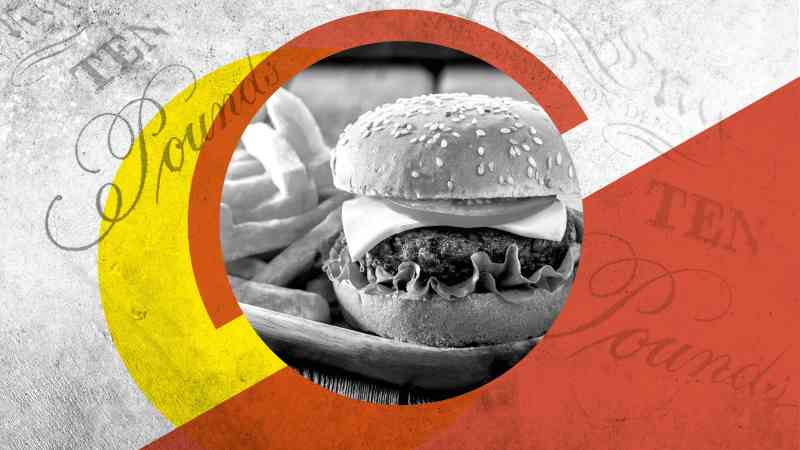Should there be a ‘fat tax’ on unhealthy foods?
Poor diet is one of the biggest risk factors linked to ill health. Some campaigners have called for a tax to curb the UK’s love of unhealthy food, while others are opposed to state intervention on consumer spending habits. Should there be a “fat tax” on ultra-processed foods and would actually make people healthier?
Christopher Snowdon, the head of lifestyle economics at the Institute of Economic Affairs, a free-market think tank
The fiasco of Denmark’s fat tax, which was introduced in 2011 and abolished 15 months later, should have ended the conversation about taxing food to tackle obesity for good.
The short-lived experiment led to inflation, lower wages, unemployment, cross-border shopping and layers of costly bureaucracy. It was deeply unpopular across the political spectrum and the Danes were glad to see the back of it.

Since then Denmark has also abolished its tax on sugary drinks, Norway has abolished its tax on sugar and Finland has scrapped its taxes on confectionery, chocolate and ice cream.
The latest justification for taxing unhealthy food is that it will encourage the industry to change the ingredients in its products and build on the “success” of the sugar tax. But what success? Rates of childhood obesity have risen significantly since the sugar tax was introduced in 2018.
• Should grandparents be paid to look after their grandchildren?
Efforts to reformulate food have repeatedly failed because consumers don’t want to eat the new product and there is no sign of that changing. Anyone who has tried eating an artificially sweetened biscuit will understand.
What is an “unhealthy” food anyway? When the Danish fat tax was introduced, the dietary villain was saturated fat. A few years later it was sugar. Today it is “ultra-processed food”, a ludicrously broad category that includes everything from hummus to wholemeal bread (but not, oddly enough, sugar or fat themselves).
I don’t know what the next fad will be but it would be unwise to use state coercion to impose it on the public. Remember the furore in 2012 when David Cameron’s government proposed putting VAT on hot pasties?
A ban on volume price discounts, such as buy-one-get-one-free deals, on so-called junk food was repeatedly postponed because of the backlash that would ensue if the government prevented hard-pushed shoppers from seeking out a bargain at a time of high inflation.
It turns out that increasing the cost of living in a doomed attempt to get people to stop eating their favourite foods is unpopular. Some doctors would like to do it anyway but as the Danish journalist Kristian Madsen wrote in 2012, “doctors don’t need to get re-elected”.
Tam Fry, the chairman of the National Obesity Forum, a charity
You only need to look at the astonishing success of the sugar tax to agree there should be a similar fat tax on unhealthy food.
The soft drinks industry levy (SDIL) was introduced in 2018 to incentivise manufacturers to strip excess sugar, a significant risk factor for obesity, from their drinks, or pay a surplus tax.

The levy was fiercely criticised by the press and public but was justly rewarded. One or two brands did maintain their classic products but most complied and introduced lower-sugar options.
It was a win-win situation. As the levies took effect, customers flocked to buy the cheaper, less sugary to such a degree that within just a year the SDIL was a success. In five years some 45,000 tons of sugar was removed from soft drinks in the UK and the levy achieved what it was designed to do — help to tackle childhood and adult obesity.
• Should you be able to boycott your water bill?
There is no similar tax on foods that are high in fat, sugar and salt, such as crisps, chocolate and biscuits — but there should be. Stripping sugar out of drinks is comparatively easy compared with reducing the high levels of fat, sugar and salt in so much of our food. A fat tax may well take longer than the two years it took to roll out the SDIL but it has to be urgently addressed, such is the severity of our obesity problem.
One alternative to a fat tax that has been suggested is a higher level of VAT on unhealthy food but that would directly hit the consumer. Instead, a fat tax similar to the sugar levy would force the industry to put its money where its mouth is.
For more than a decade the food lobby has pledged to deliver food to nutritionally acceptable standards. But all that time it has failed every deadline it set for itself, particularly in terms of the level of salt in food. New levies would send the message that the time for talking is over — now it’s time to act.




Post Comment